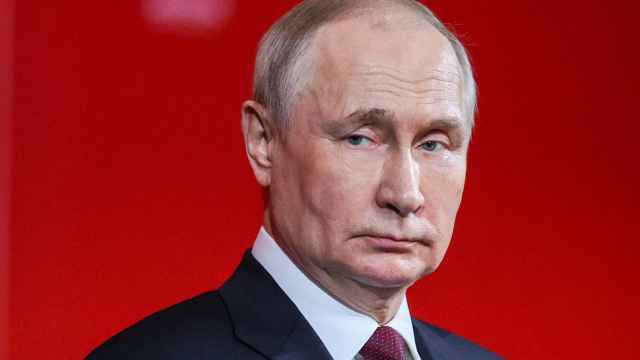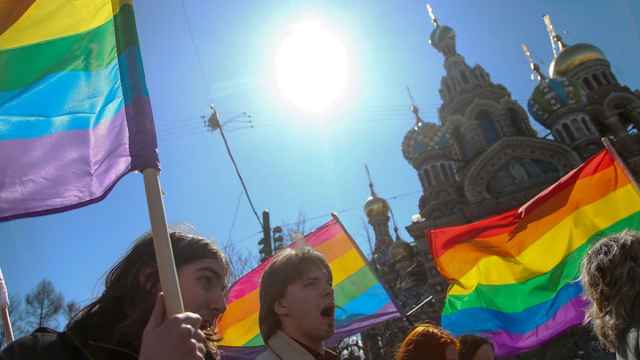A music channel owned by the media arm of Russian energy giant Gazprom was fined $11,300 for spreading “LGBT propaganda among minors” in a 90s-era music video that shows two women kissing, the independent Vyorstka news outlet reported Friday.
The music video with the offending kiss aired in July on the channel Lya-Minor TV, which is owned by Red Media, itself a part of Gazprom Media.
The video is set to the Russian rock band Tantsy Minus’ 1999 single “Gorod” (Russian for “city”).
Vyorstka notes that Russia’s state media watchdog filed a complaint against the channel in September.
According to the outlet, the watchdog used a “kissing classification” system to determine that the 9-second snippet showed “gestures of affection and tactile gestures, as well as kissing scenes between two persons of the same biological sex.”
The channel’s defense argued in court that the kiss “promotes love for Russia and its cities” and should not be sexualized.
“The female characters who kiss in the clip epitomize the beauty and enticement of a big city,” the defense attorney was quoted as saying.
Moscow’s Tagansky District Court on Dec. 18 found the channel guilty of spreading “LGBT propaganda” and issued a fine of 1 million rubles ($11,300).
Russia banned “propaganda of non-traditional sexual relations” toward minors in 2013. A decade later, President Vladimir Putin expanded the ban to outlaw public displays of non-traditional relationships and lifestyles to people of any age.
Rights groups have criticized the Russian government for failing to define what constitutes "gay propaganda" and have warned that the vague criteria mean TV channels and websites could be fined at whim.
Since invading Ukraine in 2022, Putin has accelerated Moscow's suppression of the LGBTQ+ community as part of a broader "culture war" with the West.
Late last year, Russia’s top court designated the so-called “international LGBT public movement” as a banned “extremist” organization, effectively outlawing LGBTQ+ activism.
A Message from The Moscow Times:
Dear readers,
We are facing unprecedented challenges. Russia's Prosecutor General's Office has designated The Moscow Times as an "undesirable" organization, criminalizing our work and putting our staff at risk of prosecution. This follows our earlier unjust labeling as a "foreign agent."
These actions are direct attempts to silence independent journalism in Russia. The authorities claim our work "discredits the decisions of the Russian leadership." We see things differently: we strive to provide accurate, unbiased reporting on Russia.
We, the journalists of The Moscow Times, refuse to be silenced. But to continue our work, we need your help.
Your support, no matter how small, makes a world of difference. If you can, please support us monthly starting from just $2. It's quick to set up, and every contribution makes a significant impact.
By supporting The Moscow Times, you're defending open, independent journalism in the face of repression. Thank you for standing with us.
Remind me later.






